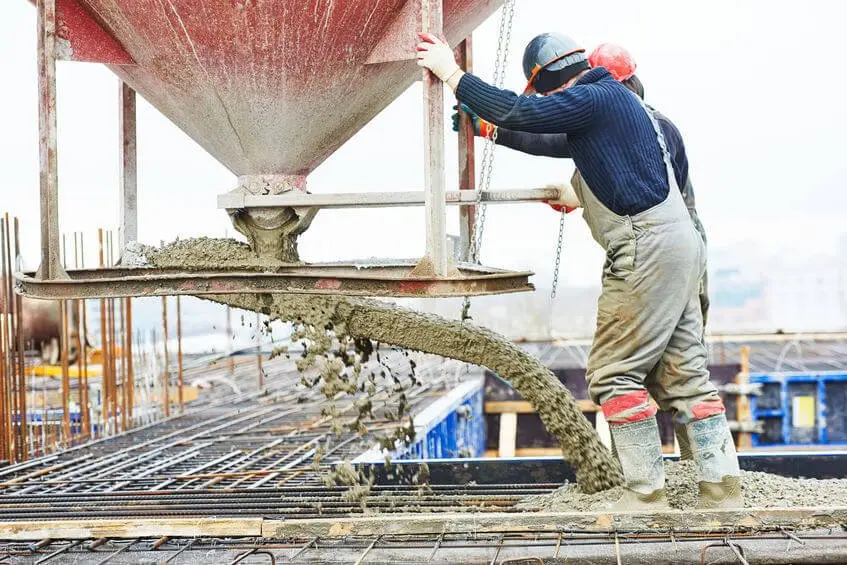
In the bustling world of construction, where every project stands on a solid foundation, the role of commercial concrete contractors cannot be overstated. From towering skyscrapers to sprawling infrastructure projects, these professionals form the bedrock upon which modern society is built. Let’s delve into the intricacies of their work, exploring their expertise, responsibilities, and the pivotal role they play in shaping our built environment.
Introduction to Commercial Concrete Contractors
Commercial concrete contractors are specialized professionals tasked with the planning, execution, and maintenance of concrete structures in large-scale construction projects. Their expertise encompasses a wide range of applications, including foundations, slabs, walls, and structural components. Whether it’s a high-rise building, a highway bridge, or an industrial facility, these contractors are indispensable in bringing architectural visions to life.
Expertise and Skills
The realm of commercial concrete contracting demands a diverse skill set and technical prowess. These professionals must possess a deep understanding of concrete materials, including their properties and behavior under various conditions. From mix design to curing methods, their expertise ensures the structural integrity and longevity of concrete installations.
Moreover, proficiency in construction techniques such as formwork, reinforcement, and finishing is paramount. Commercial projects often require intricate concrete designs and complex configurations, necessitating meticulous attention to detail and craftsmanship.
Responsibilities in Commercial Construction
Commercial concrete contractors shoulder significant responsibilities throughout the construction process. In collaboration with architects, engineers, and project managers, they contribute to the development of construction plans and specifications. This involves assessing site conditions, determining material requirements, and devising strategies to optimize efficiency and cost-effectiveness.
During the construction phase, contractors oversee the implementation of concrete works, coordinating manpower, equipment, and materials to meet project timelines and quality standards. They ensure compliance with building codes and safety regulations, mitigating risks and hazards inherent in construction activities.
Key Considerations in Project Management
Effective project management is essential for the success of commercial concrete endeavors. Contractors must adeptly navigate logistical challenges, such as scheduling conflicts, material procurement delays, and weather constraints. By employing robust project management techniques, they streamline workflows, minimize downtime, and proactively address issues to prevent costly setbacks.
Communication plays a pivotal role in project coordination, fostering collaboration among stakeholders and fostering a cohesive working environment. Regular progress updates, meetings, and site inspections facilitate transparency and alignment, enabling timely decision-making and course corrections as needed.
Embracing Innovation and Sustainability
In an era marked by rapid technological advancements and environmental consciousness, commercial concrete contractors are at the forefront of innovation and sustainability. They leverage cutting-edge technologies such as Building Information Modeling (BIM), 3D printing, and advanced concrete admixtures to enhance efficiency, accuracy, and environmental performance.
Furthermore, there is a growing emphasis on sustainable construction practices, with a focus on reducing carbon footprint, minimizing waste, and utilizing eco-friendly materials. Concrete contractors embrace sustainable design principles, incorporating recycled aggregates, implementing energy-efficient curing methods, and exploring alternative cementitious materials to promote environmental stewardship.
6. Conclusion: Building the Future
In the dynamic landscape of commercial construction, the role of concrete contractors is indispensable. Their expertise, dedication, and innovation form the cornerstone of modern infrastructure, shaping the skylines and landscapes of tomorrow. As we continue to push the boundaries of architectural possibility and environmental responsibility, these professionals will remain integral partners in building a better, more resilient future.


 Ensuring the Safety of Your Wisconsin Home’s Roof: When to Consult a Roofing Expert
Ensuring the Safety of Your Wisconsin Home’s Roof: When to Consult a Roofing Expert  Enhance Your Comfort with Premier Gas Water Heater Installations in Red Wing, Minnesota
Enhance Your Comfort with Premier Gas Water Heater Installations in Red Wing, Minnesota  Creating Inviting Outdoor Spaces: The Benefits of Outdoor Fireplaces in the Twin Cities
Creating Inviting Outdoor Spaces: The Benefits of Outdoor Fireplaces in the Twin Cities  Why Are Real Estate Serviced Apartments An Ideal Investment?
Why Are Real Estate Serviced Apartments An Ideal Investment?  How a Solar Company Designs Custom Solutions for Your Home
How a Solar Company Designs Custom Solutions for Your Home  Creative Uses of LED Strip Lighting for Accent Lighting
Creative Uses of LED Strip Lighting for Accent Lighting  The Benefits of a Fire Pit for Year-Round Outdoor Living
The Benefits of a Fire Pit for Year-Round Outdoor Living  The Role of Minimalist Lighting in Modern Interior Design: Trends and Functional Analysis
The Role of Minimalist Lighting in Modern Interior Design: Trends and Functional Analysis  Top Security Features to Look for in a Garage Door
Top Security Features to Look for in a Garage Door  Comprehensive Guide to Mold Removal in Hunterdon County: Safeguarding Your Home and Health
Comprehensive Guide to Mold Removal in Hunterdon County: Safeguarding Your Home and Health